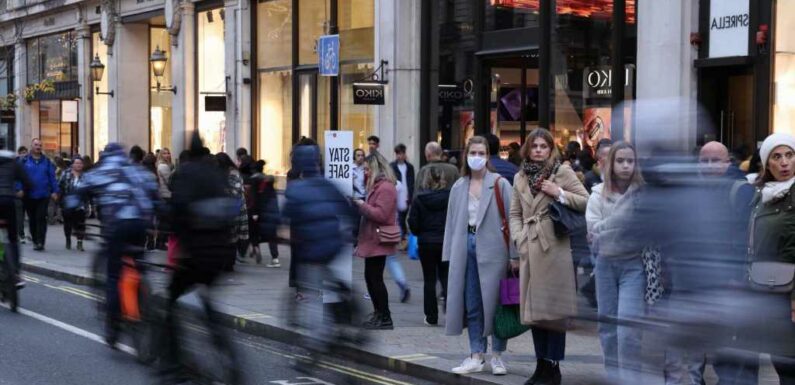
JOHN Lewis has said it will not hand staff a bonus for only the second time in 70 years.
The bonus has been paid out by the John Lewis Partnership, which includes John Lewis and Waitrose, since 1953.
But the John Lewis group, which runs the department store chain and Waitrose supermarkets, recorded a £78million loss for the year to January 28.
It represented a slump from a £181million profit in the previous year, with John Lewis blaming “inflationary pressures”.
The group currently has 34 John Lewis and 332 Waitrose supermarkets and employs more than 80,000 people.
In a letter to staff, John Lewis Partnership chairwoman Dame Sharon White said inflation had sent costs up almost £180million on last year.
READ MORE IN MONEY
John Lewis to axe eight shops with 1,500 jobs at risk – see the full list
M&S announces 17 store closures putting over 1,000 jobs at risk
She added: “All in all, this has made for a tough set of results. We made a loss of £78million.
“I am sorry that the loss means we won’t be able to share a bonus this year or do as much as we would like on pay.
“We’ll continue to help with the cost of living in other ways – the financial assistance fund will stay at £800,000 (a doubling) and there is support for travel, childcare and living costs.”
John Lewis last considered axing the bonus in 2020 when the group revealed that annual partnership profits were expected be to "substantially lower" than the previous year.
Most read in Money
Martin Lewis weighs in on changes to pensions, childcare and energy bills
I'm a mum-of-one – Universal Credit change in Budget is 'game-changer' for me
Blow to motorists as car tax to rise from April – check how much more you'll pay
The Spring Budget's winners and losers – how it will affect you and your money
More than half a dozen John Lewis stores closed in 2021 including those in York, Sheffield and Aberdeen.
The bonus began in 1920 and was originally paid out in the form of stocks and shares in the company.
In 1970, it was converted to the cash bonus staff get today.
Bonuses in the 1970s and 1980s were as high as 24 per cent and as recently as 2013 it was 17 per cent.
Every member gets the same percentage, from shelf fillers to executives.
The news comes as the UK high street is facing tough times as shoppers spend less in shops due to bills and costs increasing.
With costs high for shoppers, too it means that people have been cutting back on non-essentials and prices continue to skyrocket.
Over the last few months, major chains have been forced to close stores, including Paperchase, Iceland and B&M.
Food and pub chains have also been closing doors at several locations across the country – including Wetherspoons.
Do you have a money problem that needs sorting? Get in touch by emailing [email protected]
Source: Read Full Article






